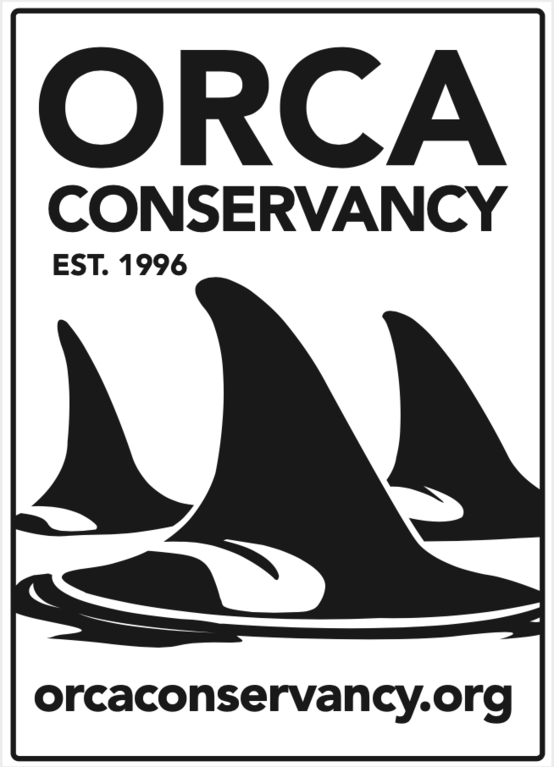Sea-Pen Sanctuaries: Progressing Towards Better Welfare for Captive Cetaceans
On Sunday, December 13, 2015, through member donations and private funding, I was fortunate to attend the "Sea-Pen Sanctuaries: Progressing Towards Better Welfare for Captive Cetaceans" workshop held at the Hilton/Union Square in San Francisco, California.
This extremely informative workshop was to address, specifically, the nuts and bolts necessary on locating and creating a cetacean sea-pen sanctuary. It also went over precise details on the legalities and permits needed, the medical protocols and precautions involved, environmental considerations, what recovery in a 'sanctuary' setting means including caution that a normal life does not happen overnight, and a look at the construction/implementation of a sea-pen sanctuary.
Questions were asked, and discussions were had with a variety of viewpoints with valuable information and perspectives given.
Clearly, this workshop was the beginning of more meetings and discussions. As President of Orca Conservancy, we welcome the discussions just as much as we welcome being part of the solution in ensuring "Sea-Pen Sanctuaries" become a reality.
Thank you,
Shari
##
Sunday, December 13, 2015
21st Biennial Conference on the Biology of Marine Mammals
Sea-Pen Sanctuaries: Progressing Towards Better Welfare for Captive Cetaceans
Organizers: Lori Marino (Kimmella Center) and Naomi Rose (Animal Welfare Institute)SPEAKERS:Dr. Heather Rally – Veterinary Considerations for the Construction and Operation of Sea Pen Sanctuaries for Captive Cetaceans. Dr. Heather Rally is a wildlife veterinarian who has experience working with a number of marine mammal rescue and rehabilitation clinics along the California coast, has conducted wild cetacean research, and has pursued specific training in marine mammal medicine. She is currently working as a veterinarian with the Captive Animal Law Enforcement Department of PETA.
Joan Gonzalvo - Working Towards a Mediterranean Dolphin Refuge. Many Questions ... Very Few Answers. Joan Gonzalvo from Tethys Research Institute, is a Catalan biologist who has participated in diverse dolphin research projects across the Mediterranean involving primarily work on fisheries interactions, population estimates and behavioral studies. During the last 15 years, he has spent hundreds of hours observing dolphin groups in their natural environment and he has designed and executed numerous public education and awareness campaigns. Since 2006 his research activities are conducted mainly in Greece, where he leads the Ionian Dolphin Project, run by Tethys Research Institute, with the aim of ensuring the long-term viability of dolphin species living in coastal waters of the eastern Ionian Sea.Courtney Vail - Sanctuaries? It's Complicated. Courtney Vail is a senior programs and campaigns manager for WDC, Whale and Dolphin Conservation. She has worked within the wildlife conservation and animal welfare field for 25 years, and has been with WDC for 16. With a diverse background in wildlife biology, environmental policy, and psychology, she has also held positions in several federal agencies, as well as the private sector, and is a proponent of consensus building and collaboration in the search for real incremental solutions that improve animal welfare and environmental protection.Rob Laidlaw - Marine Mammals in Captivity in Canada: The Issues and Legal Landscape. Rob Laidlaw is Executive Director of Zoocheck, a Canadian and US wildlife protection charity. Laidlaw has conducted a wide array of wildlife protection campaigns and animal welfare programs, including many focused on marine mammals in captivity, both in Canada and abroad, for more than 35 years. He is also an award-winning children's author and recipient of the Frederic A. McGrand award for significant contribution to animal welfare in Canada.Don Baur - The Legal Framework for Sea-Pen Sanctuaries in the U.S. -- Uncharted Waters. Don Baur is partner in the Washington DC office of Perkins Coie where he practices environmental and natural resources law. He has taught ocean law at the Vermont Law School for the last 20 years. He previously served as General Counsel of the Marine Mammal Commission and an attorney for the Fish and Wildlife Service and National Park Service. He has been involved in legal issues associated with the health and welfare of marine mammals in captivity on behalf of numerous organizations, including Defenders of Wildlife, Earth Island Institute, Free Willy Keiko Foundation, Friends of the Sea Otter, HSUS, and Ocean Future Society. Most recently, he filed an amicus brief in the successful defense of the decision to deny an importation permit for beluga whales to the Georgia Aquarium on behalf of 19 scientists, conservationists and prominent public figures.Michael Parks - Marine Filed Engineering for Installing and Maintaining a Sea Pen Sanctuary. Michael Parks is currently licensed by the USCG as a Master of motor vessels up to 1600 Gross tons on Oceans and holds current merchant marine engineering credentials. His formal education was from Oklahoma State University and University of Tulsa in Civil Engineering. During the 1989 Exxon Oil Spill in Alaska, Michael was captain of various vessels doing wildlife rescue and oil skimming operations. And, beginning in 1998, he worked as a field engineer, and then Chief of Marine Operations, on the installation and operation of Keiko’s Sea Pen and Barrier Net facility in Iceland. Michael is known for his safety record in marine operations both in Alaska and Iceland.

